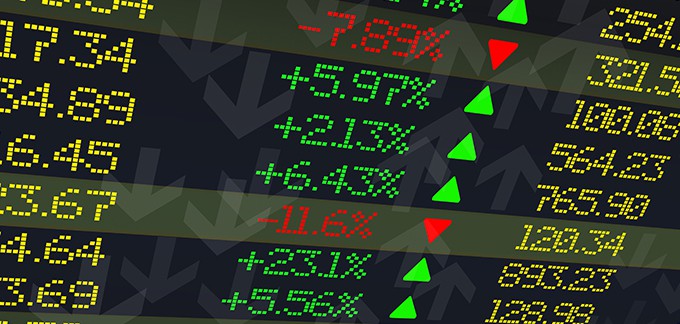Over-trading is an issue that both new and experienced traders face from time to time. This issue can occur for a variety of reasons, ranging from excitement to vengeance. Of course, you shouldn’t confuse over-trading with active trading. Many traders can place a large number of trades on a regular basis and remain profitable. Over-trading occurs when the frequency/quantity of your trades becomes counterproductive to your bottom line. This can cause you to settle for sub-par setups, burn through commissions, and make irrational trading decisions.
So, what causes over-trading?
Over-trading can occur for a variety of reasons. If you find yourself over-trading, it’s important that you pinpoint the reason why. This will allow you to take the action necessary to improve your trading.
Here are a few reasons people over-trade:
Over-excitement – When new traders get involved in the world of trading it can be an exciting time. There is so much to learn and there is a seemingly endless amount of opportunities. This can cause new traders to “jump the gun” and try to take advantage of all of these opportunities.
Boredom– Often times, if there are no prime setups, traders may settle for sub-prime setups and attempt to place trades that they normally wouldn’t. It can be difficult to stare at the screen all day without placing any trades, which may cause some traders to trade just for the sake of trading.
Vengeance – Many traders engage in erratic trading patterns following a large loss. These traders seek to recoup their lost capital by placing more trades, in hopes that the profit will cover up their loss. This is known as “vengeance trading.” Ironically, this can actually be counterproductive, as we know that over-trading causes traders to make irrational decisions.
How Can You Tell if You Are Over-trading?
In order to diagnose an issue with over-trading, it’s important to look at:
-The frequency of your trades
-The quantity of trades you place
-The quality of trades you place
-The rationale behind the trades
Patterns of over-trading will look different for every trader. For example, placing 10 trades a day may be normal for some traders, whereas if a trader usually places 3 trades a day, 10 trades may be overkill. Analyze your historical trading patterns and look for divergences.
This isn’t to say that placing a lot of trades is automatically a bad thing. Placing more trades can often be a natural part of the scaling process for aspiring traders. That being said, it’s important to make sure that the trades maintain their quality. So, if a trader generally places 3 trades/day and takes a $300 profit from the market, they should aim to take a $1000 profit when placing 10 trades. If the trader places 10 trades and still leaves the market with only $300 trading profit, there’s a chance that some of the trades were lacking in quality. A successful trader is defined by the quality of their trades, not the quantity.
How To Combat Over-trading
Be Conscious of the Issue – Before you attempt to combat the issue of over-trading, it’s important to recognize whether or not this is a real issue for you. This may seem obvious, however it’s an important part of the process. Consider this the diagnosis.
Take a Step Back from the Markets – You don’t have to trade and if you ever feel like you do, that’s probably the best time to step away for a bit. Feeling like you need to trade is a great way to start forcing trades against your better judgment.
Ask Yourself “Why?” – Before placing any trade, you should ask yourself, “Why am I placing this trade?” What setup did you see? How much profit did you expect to make? What was the risk/reward on the trade? Did the trade align with your trading strategy? This may seem like a lot of questions, but if you actually find a quality trading setup you should be able to answer them.
Make a Trading Rule – Some traders need simple black & white rules to control their behavior. If this is you, you may want to consider creating a concrete trading rule to prevent over-trading. For example, you may say that you will place no more than 5 trades on a given day or you may decide to avoid the markets for 3 days after a major loss in order to avoid vengeance trading.



